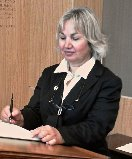
FREE Arbitration Consultation
ENGlegal is offering free consultation by prior appointment, please email info@englegal.co.uk. For further information and booking please refer to the FREE CONSULTATION PAGE.
ENGlegal provides arbitration
In English and Farsi
Benefits of Arbitration
The differences between Litigation, Arbitration and Negotiation
Litigation
One party without the agreement of the other party can proceed with litigation
The judge makes a decision and produces a judgment
The judgment is enforceable by the Court
The parties can not choose their judge, the duration or the costs
Court judgment is public and it is not confidential
Arbitration
Both parties must agree to resolve their dispute by arbitration, one party on their own cannot go to arbitration
The arbitrator makes a decision and produces a judgment called an “Award”
The judgment is enforceable in the same way as a judgment by the court
The parties can choose their arbitrator, place of arbitration, the date of the arbitration and the cost of the arbitration
Arbitration is confidential and not public
Mediation
Both parties must agree to Mediation
The Mediator does not make a decision, the mediator facilitate the negotiation between the parties
The parties decision is not enforceable by the court
The parties can choose their mediator, place of mediation, time and the cost of mediation.
Saving time and money on disputes:
Why Arbitration?
Traditionally disputes have been costly in time and money and can also be emotionally expensive.
The management of a case by the Court is out of the parties control. The dates and the Courts may be changed at any time.
There is a better way to resolve disputes where the parties can choose their judge, agree the length of time that the case should take, taking as long or as little time as the parties wish. The parties can even agree on the cost of resolving their dispute as well as agreeing on the venue. The whole case can be quicker, cheaper and where and when the parties wishes it to be. In many cases the judgment can be based on papers only if the parties choose. This is called Arbitration where the judgment has the same enforceability as a court of Law. The parties can even decide and agree on blocking any appeals if they want, before they start. Above all, unlike court cases Arbitration is confidential.
In order to promote arbitration, ENGlegal is offering a highly qualified arbitrator and full Arbitration awards at reduced fees for a limited time:
Arbitration £1000 per day + expenses (hiring venue, recording and travel expenses).
Arbitrator
 Dr Howard
Dr Howard